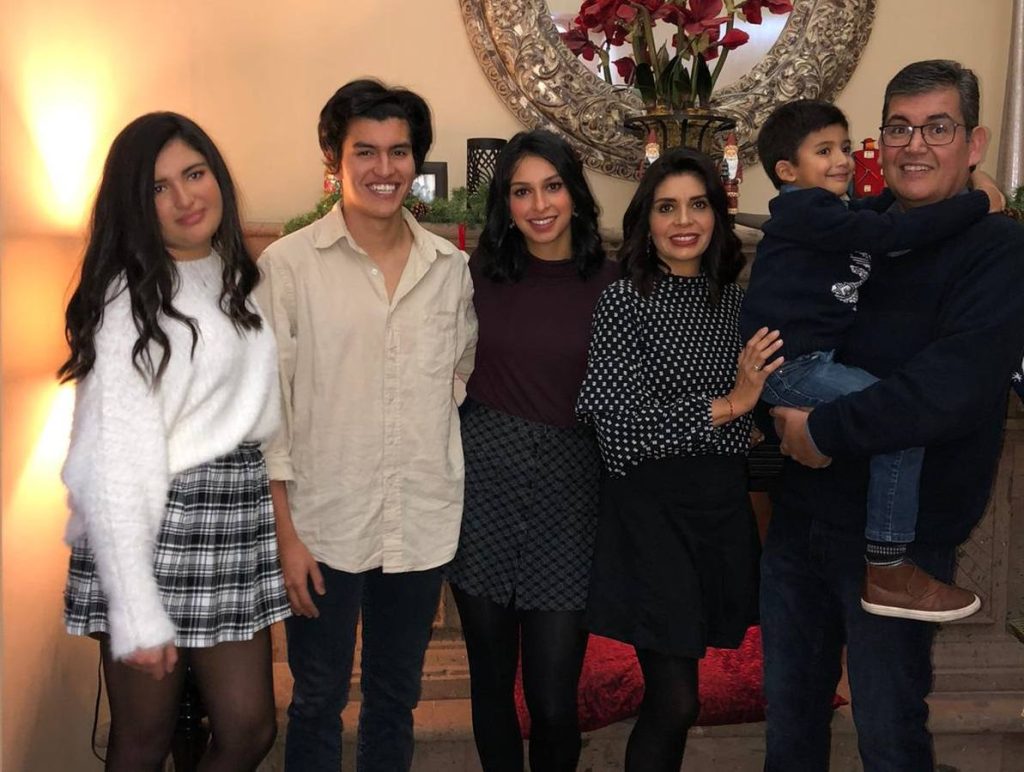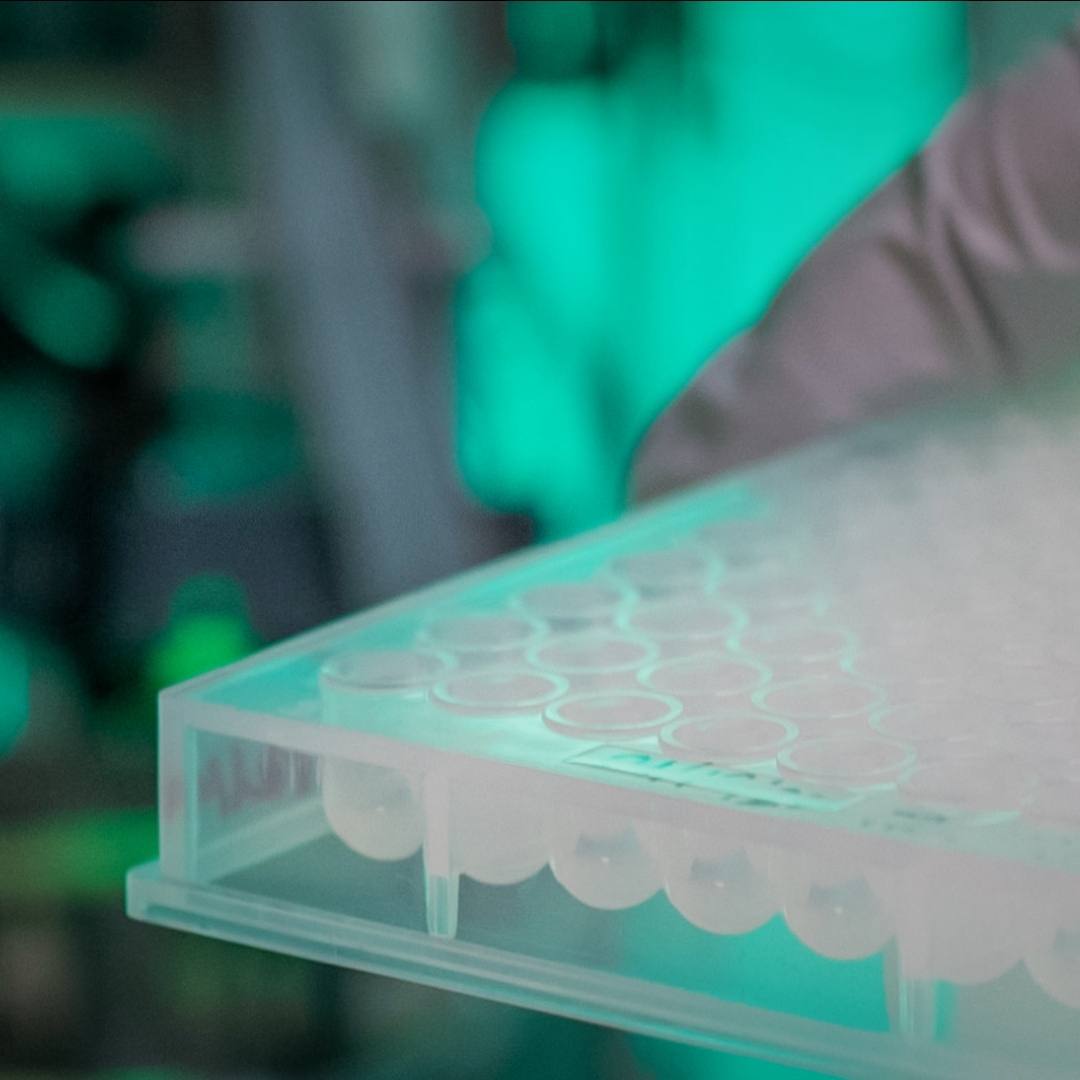-
Mayo Clinic patient grateful after genetic test leads to unexpected, early detection of colon cancer

Alejandro Mirazo (right) with his family. (Photo courtesy of the Mirazo family)
Alejandro Mirazo, 56, never imagined his genetic test results would reveal a hereditary link to cancer, or that his findings would potentially save his life. He had participated in a preemptive DNA research sequencing study for Mayo Clinic's Center for Individualized Medicine in fall 2021 solely to contribute to medical research. As a Mexican American, he also wanted to add diversity to Mayo Clinic's genomic dataset.
"I wanted to provide data to help other people and I thought this was a good way of doing my part," says Alejandro, who directs a manufacturing business in Arizona, where he lives with his wife and four children.
But his genetic test results revealed a mutation on his PMS2 gene, also known as Lynch syndrome. The inherited condition raises a person's lifetime risk of developing colon, uterine, stomach, small bowel, kidney and other cancers.
"I was shocked but very grateful," Alejandro recalls.
Alejandro's team of genetic counselors and physicians moved quickly to educate him on Lynch syndrome and help him schedule a colonoscopy.
"And that's when my doctor found a 30-millimiter cancerous tumor in my colon," Alejandro says. "Thankfully, it was caught early. If I had not received genetic testing, at some point, I would have noticed symptoms. But by then, it probably would have been too late."
Within weeks of his diagnosis, Alejandro underwent surgery to have the tumor removed. In the future, he'll undergo regular screenings and scans.
"I was lucky," Alejandro says. "I feel very, very thankful to have participated in the research study."
Mayo Clinic's Center for Individualized Medicine is sequencing the exomes of tens of thousands of people from diverse backgrounds. Exome sequencing analyzes nearly 20,000 genes that provide instructions for making proteins, which play many critical roles in the body. This is where most known disease-causing mutations occur.
The massive genomic dataset will enable researchers to investigate large-scale patterns of distinctive mutations that fuel disease. The goal is to accelerate discoveries in individualized medicine to tailor prevention, diagnosis and treatment to a patient's unique genetic makeup.
Meanwhile, study participants, like Alejandro, receive screening results for three highly actionable hereditary conditions: familial hypercholesterolemia, hereditary breast and ovarian cancer (BRCA1 and BRCA2), and Lynch syndrome.
"Alejandro and other patients like him are powerful examples of why broad population exome sequencing is essential," says Niloy Jewel Samadder, M.D., a Mayo Clinic gastroenterologist and hepatologist. Dr. Samadder is Alejandro's treating physician.
Dr. Samadder says Lynch syndrome, and hereditary breast and ovarian cancer syndrome (BRCA1 and BRCA2), are the most common inherited causes of cancer. Lynch syndrome is associated with up to an 80% risk of developing colorectal cancer and 50% risk of developing uterine or endometrial cancer.
"With early and frequent screening, the risk of cancer in both of these organs can be reduced significantly," Dr. Samadder says. "Current practice guidelines for genetic evaluation likely miss many cases of Lynch syndrome, thus whole-exome sequencing, as shown above, may have a role in identifying patients with a genetic predisposition prior to them presenting with symptomatic cancer or advanced cancer. It is also important to 'cascade' the genetic testing results to other family members."
Mayo Clinic's Center for Individualized Medicine's plan is to transform the genomic study in the near future into a routine capability offered to all Mayo Clinic patients.
"This approach would provide immediate, impactful health care insights to a small, yet critical group of participants and create a long-term data repository to promote scientific discoveries and the study of health care in the post-genomic era," says Konstantinos Lazaridis, M.D., the Carlson and Nelson Endowed Executive Director for Mayo Clinic's Center for Individualized Medicine.
Dr. Lazaridis says equally important to the discovery of a patient's hereditary genetic mutations is the potential for patients to share the findings with their family members, so they, too, can pursue care for earlier disease detection and cancer management.
Alejandro's genetic testing experience helped him realize that his blood-related relatives could also carry the genetic mutation. He wants to do everything he can to help prevent hereditary cancer from developing in the next generation of his family.
"I plan to have all of my children and family members get genetic testing, too," Alejandro says. "I would suggest this to anybody as a great tool to identify possible health concerns."
____________________________________________
Other Mayo Clinic medical research websites:
- Research at Mayo Clinic
- Discovery’s Edge
- Mayo Clinic Laboratories
- Forefront
- Center for Individualized Medicine
- Center for Regenerative Biotherapeutics
- Center for the Science of Health Care Delivery
- Mayo Clinic Cancer Center







